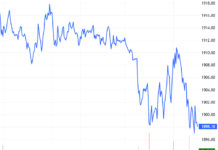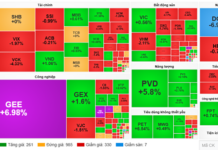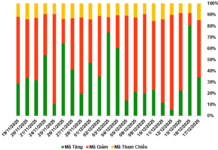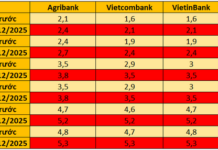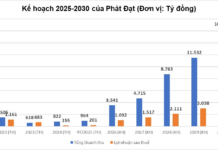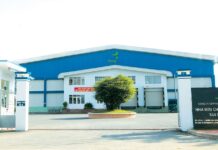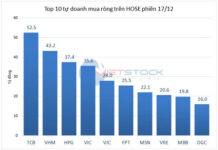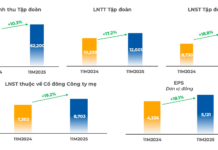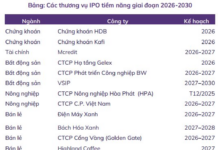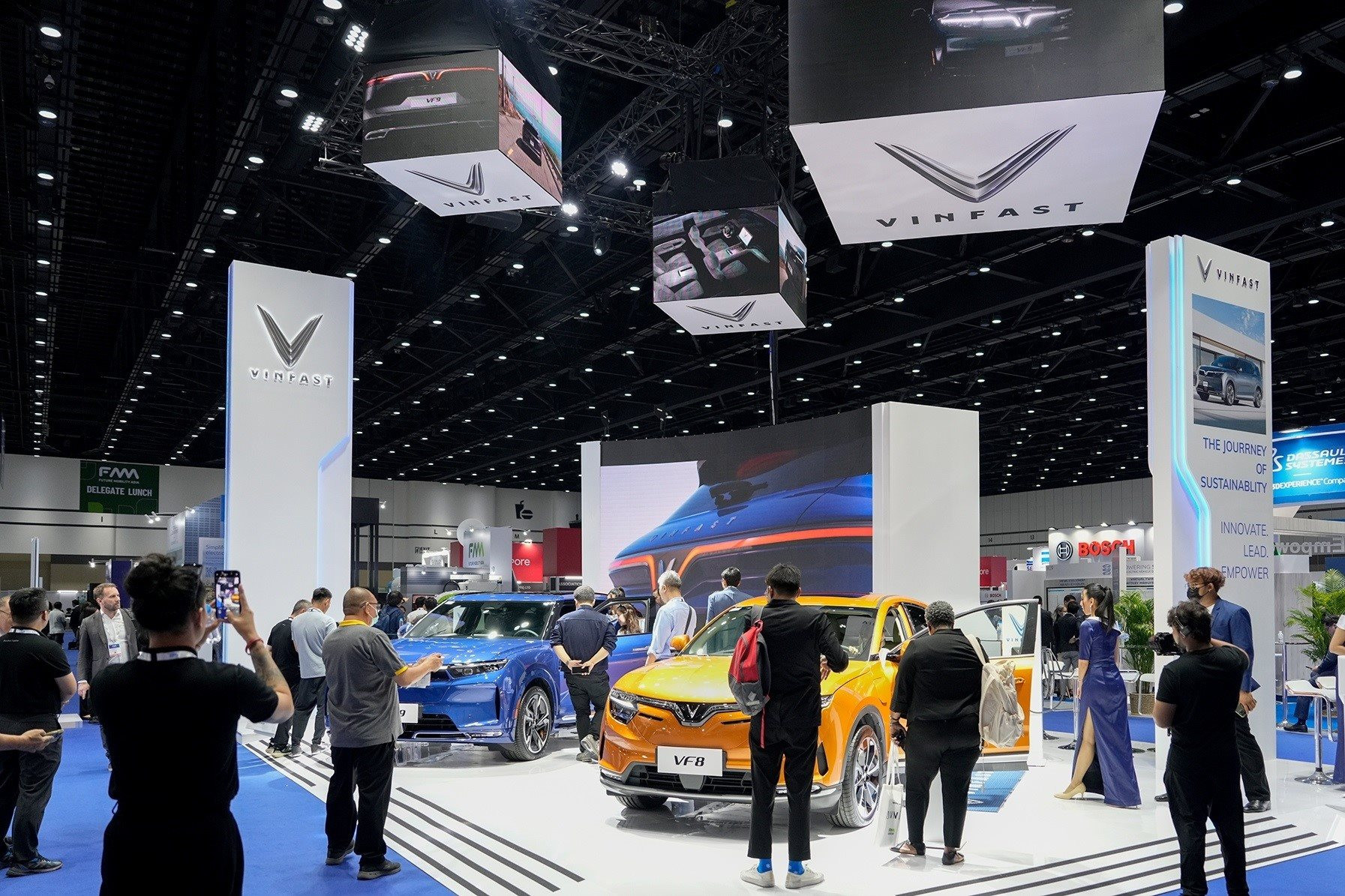
Recently, on the job platform LinkedIn, VinFast posted job openings for several positions in its office in Thailand, such as HR Manager, Logistics Manager, Sales Director, and Deputy CEO.
Prior to that, on Facebook, there were also images of an event introducing VinFast in the Thai market. This has sparked rumors that VinFast is about to enter the neighboring market.
If this happens, it would not be surprising as VinFast’s leadership has repeatedly emphasized that Southeast Asia is one of the company’s key markets.
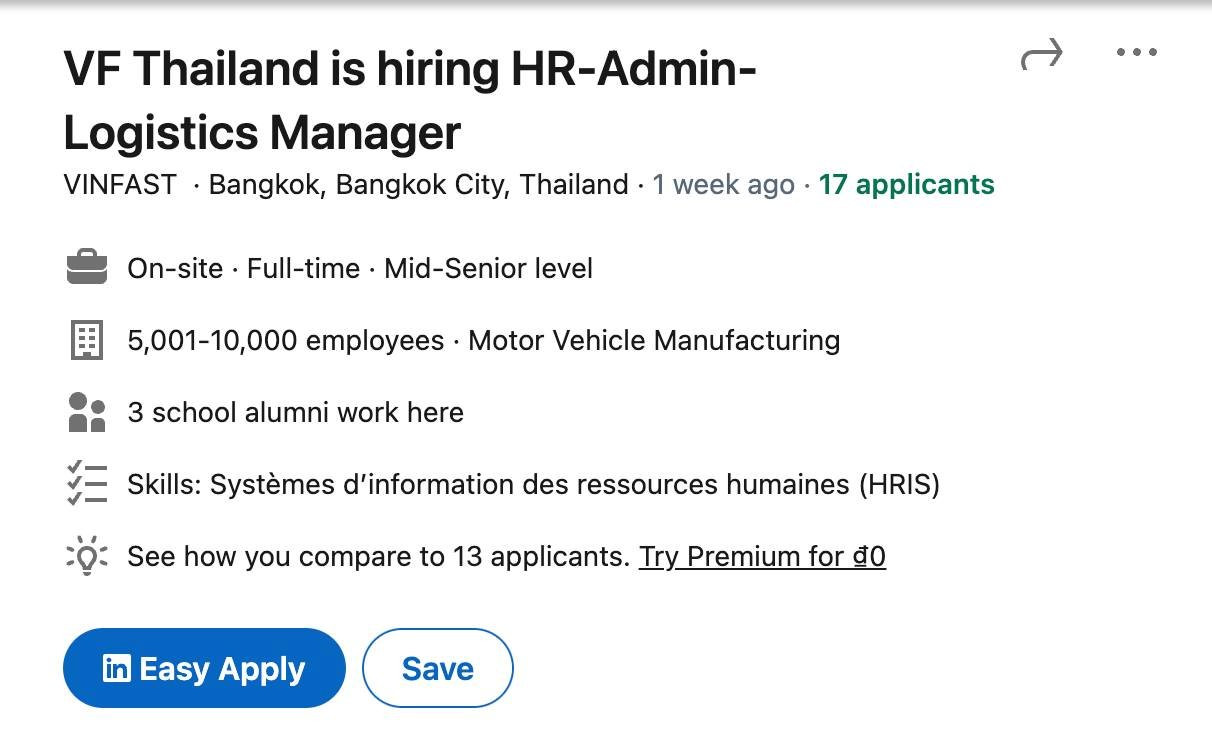

Job postings on VinFast’s LinkedIn.
In May 2023, in Bangkok, billionaire Pham Nhat Vuong’s automotive company announced its plan to expand into the electric vehicle market with a complete range of electric cars. At the same time, it planned to launch its first lineup of electric cars in the international market.
“
Expanding into the Southeast Asian region is part of VinFast’s global development strategy. We aim to bring intelligent, safe, and excellent mobility solutions to ASEAN countries, thereby promoting a greener future for everyone,” said Le Thi Thu Thuy, Chairwoman of VinFast.
Recently, VinFast has also officially announced plans to enter the Indonesian and Philippine markets. In Indonesia, the Vietnamese automaker will build a reverse-driving vehicle manufacturing plant to export to right-hand drive countries in Southeast Asia like Thailand, Singapore, and Malaysia.
In the Thai market, according to a report by the Thai Automotive Institute, in 2022, the country has risen one spot to enter the top 10 countries with the largest car production in the world, with 1.88 million units. The country’s automotive industry accounts for only 2% of GDP, while car sales and repairs account for 16% of GDP.
Thailand also ranks 17th in the world in terms of car exports with 20 light vehicle manufacturers and 10 heavy vehicle manufacturers, with a total annual capacity of about 3 million units. It is estimated that by 2030, Thailand’s car production will reach 2.5 million units, with zero-emission vehicles accounting for about 30% of the total.

Image from an event introducing VinFast in the Thai market.
“
Compared to Vietnam, Thailand does not have a domestic car manufacturer as large as VinFast in terms of scale, production volume, product variety, and global brand coverage.
However, the demand for electric cars is booming in Thailand thanks to the government’s reduction of import and special consumption taxes, as well as cash subsidies for buyers who switch to domestically-produced cars by automobile manufacturers. These measures are part of a new effort to maintain Thailand’s position as the automobile hub of Southeast Asia.
These measures, implemented since 2022 and extended until 2027, are attracting a new wave of investments. Large Chinese car manufacturers such as BYD and Great Wall Motor are among the companies building factories in Thailand.
In addition to Chinese companies, at the end of December 2023, the Thai government announced that four major Japanese automakers are planning to invest a total of 150 billion baht (4.3 billion USD) in the electric vehicle sector in this Southeast Asian country in the next five years.
Currently, the most popular electric car models in Thailand are mostly small-sized and mini-sized models from Chinese brands such as NETA, BYD, Wuling, MG, and GWM. Japanese cars are also highly preferred, with Nissan, Toyota, Lexus offering pure electric models. In addition, there are luxury electric models from Mercedes-Benz, BMW, MINI, Audi, Porsche, Volvo…

